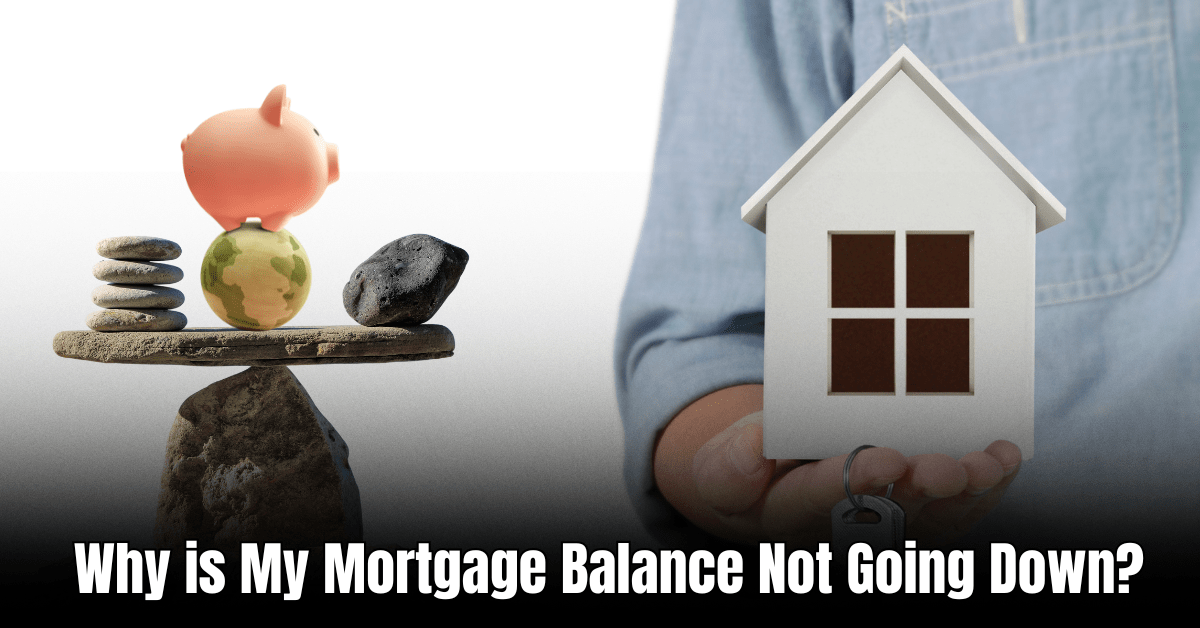Are you wondering why your mortgage balance isn’t decreasing as quickly as you expected? Don’t worry, you’re not alone! Many homeowners find themselves in this situation, and there can be several reasons for it.
1. Interest Rates
One possible reason for your mortgage balance not going down is the interest rates. If you have a fixed-rate mortgage, your interest rate will remain the same throughout the loan term. However, if you have an adjustable-rate mortgage, your interest rate can fluctuate, which might affect how quickly your balance decreases. Higher interest rates can result in larger interest payments and slower principal reduction.
2. Amortization Schedule
Another factor to consider is your mortgage’s amortization schedule. Most mortgages have a predetermined payment structure that prioritizes interest payments in the initial years. In the early stages of your loan term, a significant portion of each payment goes toward interest, while the principal reduction is relatively small. Over time, as you make regular payments, more of each installment will be allocated towards the principal, accelerating your balance reduction.
3. Extra Fees or Charges
Check if you have any additional fees or charges associated with your mortgage. Some loans might have prepayment penalties or other charges that can slow down the reduction of your mortgage balance. Review your loan agreement and consult with your lender to understand if such fees are applicable to your specific loan.
4. Missed Payments or Late Fees
Missed payments and late fees can also contribute to your mortgage balance not going down. If you have missed a payment or failed to pay on time, the unpaid amount, along with any applicable penalties, will be added to your outstanding balance. It’s essential to prioritize making your mortgage payments consistently and on time to prevent this from happening.
5. Insufficient Extra Payments
If you want to pay off your mortgage faster, you can make extra payments towards the principal balance. However, if the extra payments you are making are not substantial enough, they may not significantly impact your balance reduction. Keep in mind that even a small increase in your monthly payments can make a significant difference in the long run.
To understand the potential impact of additional payments, consider using a mortgage calculator. These tools allow you to input various payment scenarios to see how they affect your remaining balance.
6. Escrow Account Adjustments
If you have an escrow account to pay for property taxes and homeowners’ insurance, any adjustments in these amounts can impact your monthly mortgage payment. If the taxes or insurance premiums increase, your monthly payment might go up, and less money will be allocated towards reducing your mortgage balance.
7. Refinancing or Loan Modifications
Refinancing or modifying your loan can also affect the rate at which your mortgage balance decreases. When you refinance, you essentially replace your existing mortgage with a new one, which may come with a different interest rate, loan term, or payment structure. Similarly, loan modifications can alter the terms of your mortgage. Before pursuing either option, carefully consider and compare the potential impact on your mortgage balance.
Frequently Asked Questions: Why Is My Mortgage Balance Not Going Down: Actionable Tips And Insights
Why Is My Mortgage Balance Not Going Down?
Mortgage balance may not decrease due to interest charges, delays in payment processing, or improperly applied payments. Contact your lender for clarification.
How Can I Make My Mortgage Balance Decrease?
To reduce your mortgage balance, make additional principal payments, refinance to a lower interest rate, or make consistent payments without delays.
What Should I Do If My Mortgage Balance Is Increasing?
If your mortgage balance is increasing, it could be due to missed or late payments, an increase in interest rates, or added fees. Contact your lender immediately to address the issue.
Can an Escrow Account Affect My Mortgage Balance?
Yes, your mortgage balance may be impacted by changes in your escrow account, such as property tax or insurance adjustments. Consult your lender for a detailed explanation.
Conclusion
There can be various reasons why your mortgage balance is not decreasing as expected. It is crucial to assess factors such as interest rates, amortization schedules, extra fees, missed or late payments, and insufficient extra payments. Understanding these factors will help you make informed decisions to accelerate the reduction of your mortgage balance and achieve your homeownership goals sooner.
Ismail Hossain is the founder of Law Advised. He is an Divorce, Separation, marriage lawyer. Follow him.





Leave a Reply